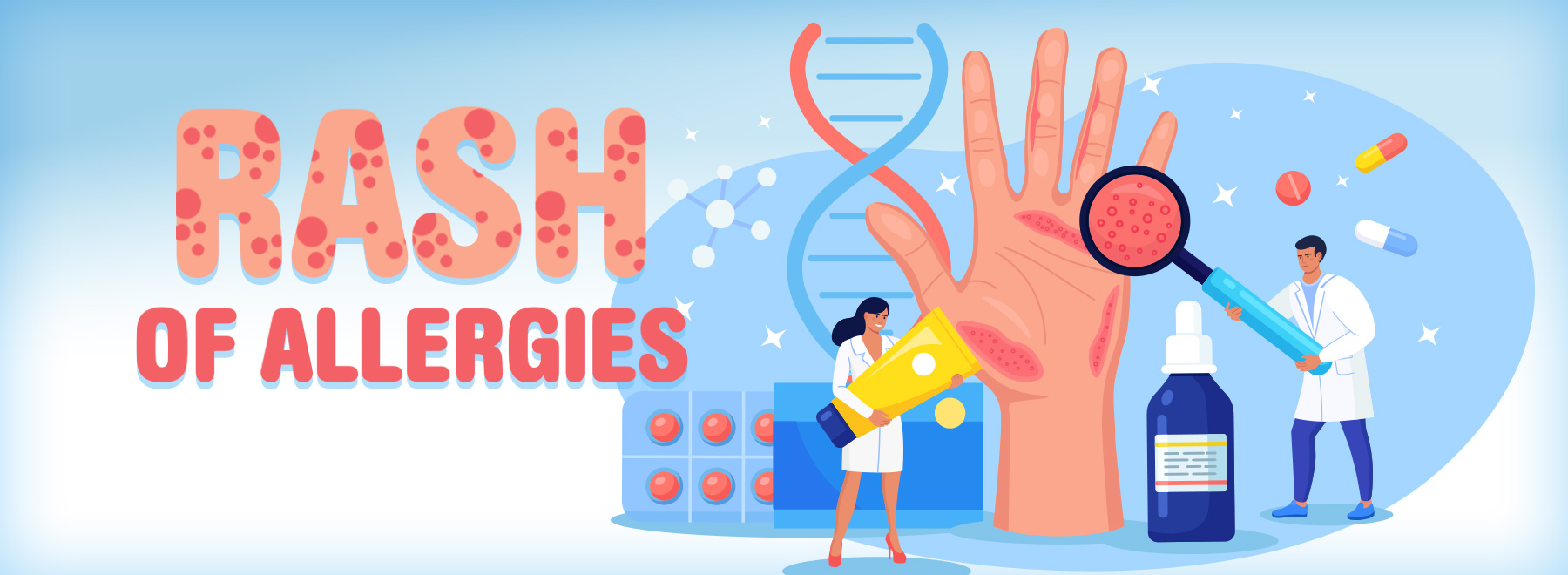UMMC experts: eczema can ‘march’ into allergies, asthma
When it comes to eczema and allergies, one thing can lead to another.
Whether the eczema patient is a child or an adult, the allergic, or atopic, march should be kept in mind, experts at the University of Mississippi Medical Center say. Eczema, also known as atopic dermatitis, is a skin condition characterized by an itchy, flaky rash. The atopic march refers to how allergic diseases progress in a person over time and usually starts in infants.

"If an infant or young child develops significant eczema, parents should consider a referral to an allergists-immunologist to determine if there might be an allergic component to this skin condition,” said Dr. Gailen Marshall, the R. Faser Triplett Sr., MD, Chair in Allergy and Immunology and chief of allergies and immunology at UMMC. “This is particularly true for children whose parents (one or both) and/or siblings have a history of allergy.”
The itch of eczema isn’t the only reason to treat the condition, Marshall said. “The greatest concern, aside from treating eczema, which can be quite irritating and upsetting, is the risk of progression from a skin condition to developing specific food allergy sensitizations and new allergic respiratory diseases such as allergic rhinitis, or hay fever, and even asthma.”
The allergic march does not occur in all children with eczema, he said, “but can, to a degree, be predicted by exposure history and family history of allergy.”

“Dry skin and worsening of skin conditions such as eczema are what we see in the winter,” said Dr. Jeremy Jackson, professor and chair of dermatology. “Exposure to the cold and, in particular, the wind on the face can often lead to more dryness and cracking in areas like the lips.”
For those with known allergies, chemicals that come into contact with clothing, chiefly scented laundry detergents and certain soaps, can pair with variable weather to make for quite an itchy winter.
“Many moisturizers contain ingredients that enhance the fragrance that can worsen the skin if someone has an underlying allergy to it,” Jackson said. “Taking very hot showers can also worsen dry skin.”
Choosing dye- and fragrance-free detergents at the grocery store is recommended for anyone with skin issues during the winter, especially those with allergies, Jackson added. Prescription-strength creams are often prescribed for those with allergic skin conditions, depending on severity.
“We also recommend moisturizing with a cream or ointment over a lotion if someone is dealing with dry skin or eczema,” he said.

Dr. Anne Yates, chief of the Division of Pediatric Allergy, Asthma and Immunology, said that some children have a genetic predisposition for eczema, or atopic dermatitis.
“Skin is supposed to block allergens,” she said, “but atopic dermatitis increases the risk of infections from viruses and bacteria.”
Children who have the itchy skin condition should be treated by an allergist or dermatologist, she said. “There are some babies who have very severe atopic dermatitis, and treatment really can make a difference.”

“Skin of babies and kids are much thinner than adults, so they are at higher risk for dry skin and itchy rash,” said Dr. Thy Huynh, assistant professor of dermatology and pediatrics. “We recommend to parents to be observant of their baby’s skin and look out for any kind of rash that might appear to be more than just young skin.”
The range of treatments available for young children with moderate to severe eczema has expanded in recent years, she said.
Other eczema options include “soak and seal skin care,” involving warm baths daily followed by patting on a cream or ointment on damp skin to lock in moisture. Detergents for clothes and sheets should be mild, clear and unscented.
Treatment of eczema doesn’t stop the allergic march, but it will keep babies healthier and more comfortable.
Strong efforts are being made to better identify and understand why some children progress in the allergic march and others don’t, Marshall said, and how it affects adults.
"While the progress of the allergic march can be different in adults compared to children, an alarming increase in the incidence and prevalence of new onset allergic conditions such as eczema, food allergies, rhinitis and asthma is being observed in adults as well,” he said. “This has been attributed, at least in part, to the western diet, climate change which as effected intensity and duration of the allergy pollen seasons, increasing pollution (particularly petrochemical) and the increasing complexities of daily living which can contribute to higher levels of perceived stress, anxiety, worry and depression. All of these factors have been shown to alter host immunity in a fashion that would promote the development of the allergic march.”
— — —
To make an appointment with a UMMC or Children’s of Mississippi allergist or immunologist, call 888-815-2005 or make an appointment online. To make an appointment with a UMMC dermatology specialist, call 601-815-3374 or online here.
The above article appears in CONSULT, UMMC’s monthly e-newsletter sharing news about cutting-edge clinical and health science education advances and innovative biomedical research at the Medical Center and giving you tips and suggestions on how you and the people you love can live a healthier life. Click here and enter your email address to receive CONSULT free of charge. You may cancel at any time.



